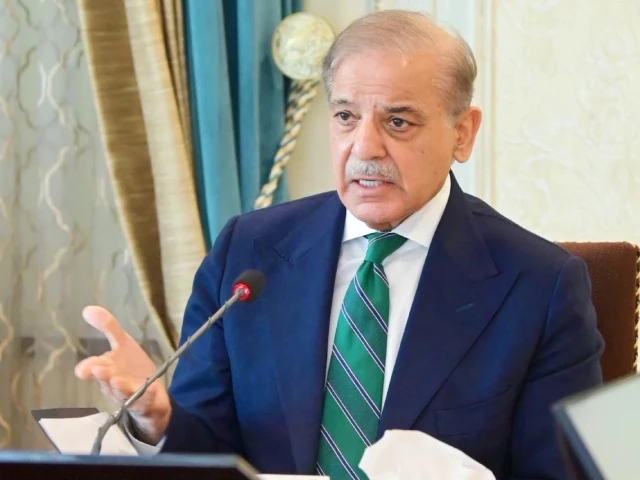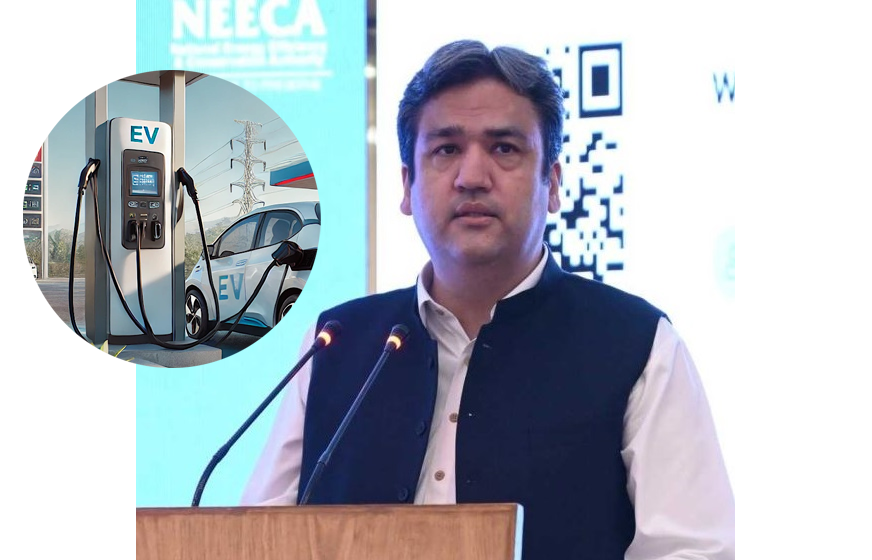PTBP Web Desk
Prime Minister Shehbaz Sharif has directed all federal ministers to immediately identify actionable projects and take urgent steps for their implementation. The directive came during a high-level Zoom meeting chaired from London on Monday, where the focus remained on strategies to boost investment, trade, and economic growth in Pakistan.
During the session, the prime minister stressed that each ministry has been given specific targets and responsibilities. He emphasized the need to use every available resource to ensure the timely completion of ongoing development projects. According to him, the government’s approach is to shift from slow policy discussions to practical steps that directly impact the economy.
PM Shehbaz underscored the importance of formulating a comprehensive roadmap and reform agenda with a forward-looking vision. He said the plan should be designed to push the country toward organized economic progress and attract both domestic and foreign investment.
The prime minister highlighted several key sectors — agriculture, information technology, minerals, tourism, and renewable energy — as priority areas that have the potential to bring in significant foreign capital. By focusing on these areas, the government aims to strengthen the investment climate while also creating new opportunities for exports.
“Along with investment, promoting trade is also part of our policy so that our exports can increase substantially,” PM Shehbaz remarked.
In his address, the prime minister reiterated that the private sector will have a pivotal role in the country’s economic roadmap. He stressed that government reforms alone are not enough — the participation of businesses, entrepreneurs, and investors is essential to drive long-term growth.
He explained that the government’s current economic and financial reforms have already put Pakistan on a new path. Thanks to innovation, transparency, and reform-driven governance, the country is now moving toward sustainable economic progress.
The meeting was attended by several federal ministers, each of whom holds portfolios tied to critical areas of investment and trade. These included:
- Musadik Malik, Federal Minister for Climate Change
- Ali Pervez Malik, Federal Minister for Petroleum
- Muhammad Jehanzeb, Federal Minister for Finance
- Jam Kamal, Federal Minister for Commerce
- Attaullah Tarar, Federal Minister for Information
- Ahad Khan Cheema, Federal Minister for Economic Affairs
Each ministry is expected to draw up sector-specific action plans that align with the prime minister’s vision. For example, the commerce ministry will focus on export promotion and trade facilitation, while the finance ministry is expected to prioritize reforms that encourage investment inflows. Similarly, the petroleum and energy ministries will likely accelerate initiatives in renewable energy and natural resource development.
Pakistan’s agriculture sector contributes significantly to GDP but suffers from low productivity and outdated methods. PM Shehbaz’s directive signals renewed efforts to modernize farming practices, increase yields, and introduce technology-driven solutions. These changes could enhance food security while generating surplus for export.
The IT sector remains one of the fastest-growing industries in Pakistan. By encouraging IT exports, digital startups, and outsourcing services, the government aims to expand its footprint in the global digital economy. With the right reforms, IT exports could cross the $5 billion mark in the near future.
Pakistan is rich in untapped mineral resources, including copper, gold, and rare earth elements. Proper exploration and investment can turn the sector into a revenue powerhouse, attracting multinational companies and generating employment.
Tourism has vast potential, with Pakistan offering diverse landscapes from mountains to beaches. The prime minister urged the development of infrastructure, hospitality services, and international marketing campaigns to draw foreign tourists, thereby boosting the economy.
Energy shortages remain a major bottleneck for growth. By investing in solar, wind, and hydropower projects, Pakistan can reduce reliance on fossil fuels, lower import bills, and attract green financing from international partners.
PM Shehbaz emphasized that export growth is crucial to stabilizing the economy and reducing the trade deficit. By enhancing production capacity, removing trade barriers, and signing favorable trade agreements, Pakistan can integrate more effectively into global markets.
The government is also expected to explore regional trade partnerships with countries in South Asia, the Middle East, and Central Asia to diversify export destinations and reduce dependency on a few markets.
The prime minister’s latest directive is seen as part of his broader effort to revitalize Pakistan’s economy through reforms, investment promotion, and trade expansion. Industry watchers say the next few months will reveal whether ministries are able to deliver concrete outcomes from these instructions.
If successful, the move could set Pakistan on a path to higher growth, increased foreign direct investment, and improved competitiveness in global trade. However, experts also caution that bureaucratic delays and lack of policy continuity remain challenges that the government will need to overcome.




